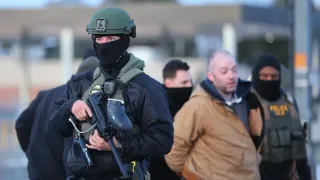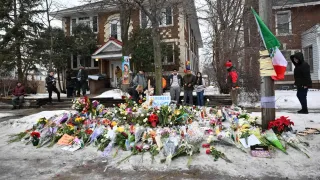May 9, 2017
Fox News Anchor Shepard Smith Opens Up on Sexuality
READ TIME: 1 MIN.
Longtime Fox News anchor Shepard Smith has opened up about his sexuality and the impact it has had on his career.
Smith mentioned in a recent speech at the University of Mississippi that he had never stood in front of a group of people to talk about being gay, but added that he has "nothing to hide."
Smith says he began living his "truth" within the past decade. He says he never "outed" himself because he didn't think he was "in." Smith told students he spent many years constantly working, in part because he didn't want to deal with his sexuality.
Now, Smith says he doesn't think about his sexuality much. He says he goes to work, covers the news and goes "home to the man I'm in love with."






